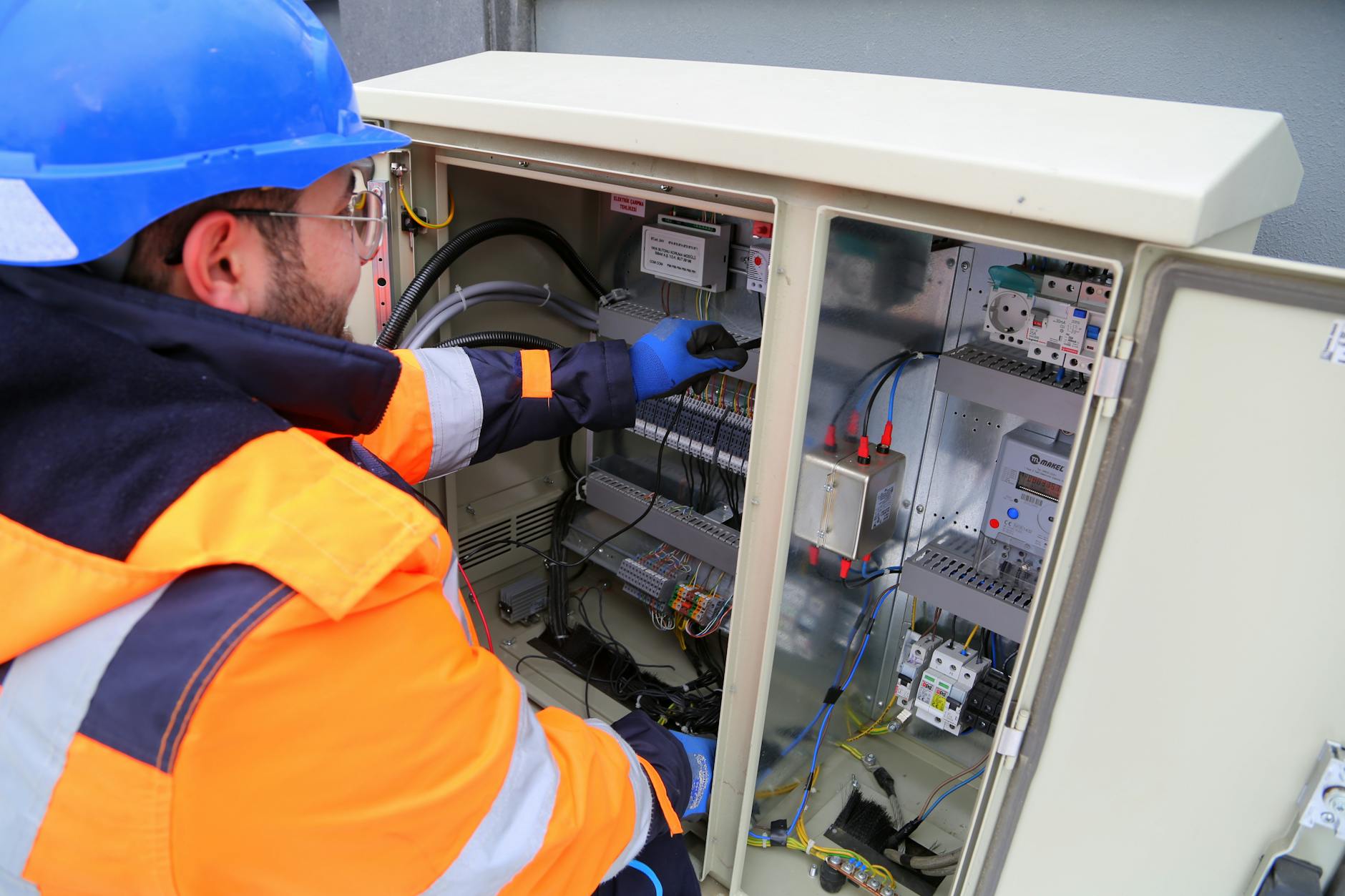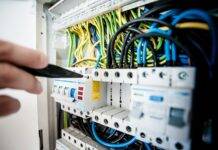
Earth Leakage Protection: ELCB vs RCD vs RCBO
Introduction
Earth leakage protection devices are crucial for electrical safety, preventing electric shocks and fires caused by faulty wiring or insulation failures. Three common devices used for this purpose are Earth Leakage Circuit Breakers (ELCBs), Residual Current Devices (RCDs), and Residual Current Circuit Breakers with Overcurrent Protection (RCBOs). While they all serve a similar purpose, they operate differently and are suited for various applications.
This guide explains the differences between ELCBs, RCDs, and RCBOs, their working principles, advantages, and applications to help you choose the right protection for your electrical system.
1. Earth Leakage Circuit Breaker (ELCB)
What is an ELCB?
An ELCB (Earth Leakage Circuit Breaker) is an older type of protection device that detects earth faults by monitoring voltage differences between the earth wire and a reference voltage.
How Does an ELCB Work?
- It measures voltage on the earth conductor.
- If a fault (leakage) occurs, the voltage difference triggers the ELCB to trip, cutting off power.
Advantages
- Provides basic earth fault protection.
- Simple and cost-effective for older installations.
Disadvantages
- Does not detect current leaks between live and neutral (only earth wire voltage).
- Requires a proper earth connection, making it unreliable in some cases.
- Less sensitive compared to modern RCDs.
Applications
- Older electrical systems where earth leakage protection is needed but RCDs are not available.
2. Residual Current Device (RCD)
What is an RCD?
An RCD (Residual Current Device) is a more advanced protection device that detects imbalances between live and neutral currents, indicating a leakage (such as through a person or faulty appliance).
How Does an RCD Work?
- Continuously monitors current flow in live and neutral wires.
- If an imbalance (typically 30mA, 100mA, or 300mA) is detected, it trips within milliseconds.
Advantages
- Detects all types of leakage currents, not just earth faults.
- Faster response time (can prevent fatal electric shocks).
- Does not rely solely on an earth connection.
Disadvantages
- No overcurrent protection (must be used with an MCB or fuse).
- Can nuisance-trip due to minor leakages.
Applications
- Homes, offices, and industries for personal shock protection.
- Mandatory in modern wiring regulations (e.g., IEC 60364, NEC).
3. Residual Current Circuit Breaker with Overcurrent (RCBO)
What is an RCBO?
An RCBO (Residual Current Breaker with Overcurrent) combines the functions of an RCD (earth leakage protection) and an MCB (overcurrent/short-circuit protection) in a single device.
How Does an RCBO Work?
- Detects residual current (like an RCD).
- Trips on overcurrent/short circuits (like an MCB).
Advantages
- All-in-one protection (earth leakage + overcurrent).
- Saves space in the distribution board.
- More reliable than separate RCD + MCB setups.
Disadvantages
- More expensive than standalone RCDs or ELCBs.
- Slightly bulkier than individual components.
Applications
- Modern electrical panels requiring both leakage and overcurrent protection.
- Critical circuits where individual protection is needed (e.g., kitchens, bathrooms).
Comparison Table: ELCB vs RCD vs RCBO
| Feature | ELCB | RCD | RCBO |
|---|---|---|---|
| Earth Leakage Protection | Yes | Yes | Yes |
| Overcurrent Protection | No | No | Yes |
| Detection Method | Voltage-based | Current-based | Current-based |
| Needs Earth Wire | Yes | No | No |
| Sensitivity | Low | High (30mA+) | High (30mA+) |
| Cost | Low | Moderate | High |
| Modern Usage | Rare | Common | Increasing |
Conclusion
- ELCBs are outdated and mostly replaced by RCDs.
- RCDs provide superior leakage protection but require an additional MCB for overcurrent safety.
- RCBOs offer the best all-in-one solution but at a higher cost.
For modern installations, RCBOs are the best choice as they provide comprehensive protection. However, RCDs with MCBs remain a cost-effective alternative.
Electrical Safety Interview: 50 Questions and Sample Answers
Electrical Work JSA (Job Safety Analysis) | Free Download
National Electrical Safety Month
FAQs
1. Can I replace an ELCB with an RCD?
Yes, RCDs are more reliable and provide better protection. However, ensure proper wiring compatibility.
2. Why does my RCD trip frequently?
Possible causes:
- Faulty appliances (unplug devices to test).
- Moisture in wiring (check for dampness).
- Insulation degradation.
3. Is an RCBO better than an RCD + MCB?
Yes, an RCBO combines both functions, reducing wiring complexity and improving reliability.
4. What is the safest leakage current rating for homes?
- 30mA RCD/RCBO is ideal for personal shock protection.
- 100mA/300mA is used for fire protection in industrial settings.
5. Do I still need an ELCB if I have an RCD?
No, RCDs provide better protection and do not require an earth reference.
By understanding the differences between ELCBs, RCDs, and RCBOs, you can make an informed decision to ensure electrical safety in your home or workplace. Always consult a qualified electrician for installation and upgrades.
























